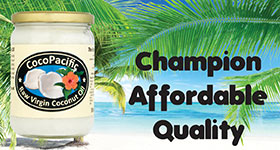|
|
Probiotic formula reduces stress |
According to a new study published this week ahead of print by the British Journal of Nutrition1, Institut Rosell-Lallemand probiotic formula Probio’Stick® (a combination of Lactobacillus Rosell-52 and Bifidobacterium Rosell-175), significantly alleviates psychological distress in volunteers. These results are supported by a pre-clinical behavioural study also described in the same publication, demonstrating the anxiolytic-like effects of Probio’Stick® in rats. In a previous randomized study, Probio’Stick® was shown as the first probiotic preparation to efficiently reduce stress-induced gastrointestinal symptoms in chronic stress sufferers 2. The clinical study was supervised by the team of Drs Messaoudi and Bisson in Nancy (France). It assessed the effect of one-month Probio’Stick® administration on anxiety, depression, stress and coping strategies in healthy human volunteers, using a range of psychological self-assessment tests and a biomarker for stress and anxiety (24 hour urinary free cortisol monitoring). The study involved 55 healthy stressed subjects in total. A few months ago, another innovative pre-clinical study was presented by Professor Guy Rousseau at the New York Academy of Science. This behavioural study, performed in rats, showed the positive effects of the same probiotic preparation (Probio’Stick®) on behavioural signs of depression following myocardial infarction. Possible modes of actions 1) Competitive exclusion of gut pathogens by the probiotics (certain gut pathogens produce substances shown to induce anxiety and aggression in animals, e.g. propionic acid). The authors explain that it has been shown in the past that both Lactobacillus Rosell-52 and Bifidobacterium Rosell-175 exert anti-inflammatory properties on human intestinal epithelial cells3. References: 1. Messaoudi M., Lalonde R., Violle N., Javelot H., Desor D, Nejdi A., Bisson J.-F., Rougeot C., Pichelin M., Cazaubiel M. And Cazaubiel J.-M.: Assessment of psychotropic-like properties of a probiotic formulation (Lactobacillus helveticus R0052 and Bifidobacterium longum R0175) in rats and humans. Br J Nutr. 2010 Oct 26:1-9. Taken from material provided by the Institut Rosell First Published October 2010 Click here for LINKS to manufacturers of nutrition and food supplements. |








